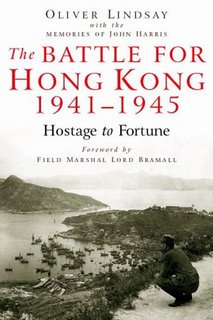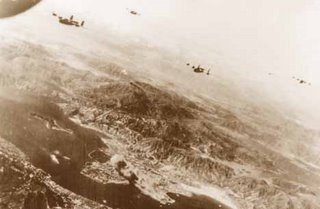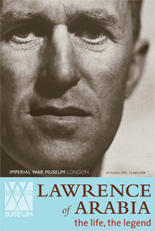The Battle for Hong Kong...

the most incredible photo in the book is similar to this one...taken (I think) from the same aircraft as the one in the book...but at a slightly different time...taken 16th October 1944.

from the SCMP
It continues to amaze me how much the British government underestimated the Japanese threat to Hong Kong (and Singapore and elsewhere)...the forces defending Hong Kong from the Japanese didn't have a prayer...
Whenever I read about WWII in Hong Kong I can't help wonder what the Canadian forces felt, arriving in a totally foreign land with really no connection to them and no doubt pretty quickly realising the odds were against them. Probably a fairly similar feeling to the one the ANZAC forces at Gallipoli would have felt. 'For King and Country'.....
And this brief comment on the Japanese attack on Singapore...
'the first Japanese air raid on the installations was an instant success; everything was beautifully lit up because the man responsible for blacking out had gone off duty taking the key to the electricity power station with him.'













6 Comments:
MC:
It wasn’t just the British that underestimated the Japanese. Americans (represented by our President Franklin D. Roosevelt) were equally guilty. FDR was a racialist. He thought the Japanese inferior beings. Not to pick on him or Queen Victoria (whom I respect); but he represented a Victorian view on the matter. Remember that FDR and others of his generation were Victorians in birth and in view.
One could argue that the Japanese-Russian War of 1904 should have cured FDR et al. of any notion of superiority, particularly in light of the Japanese destruction of the Russian navy (largely German built) at Tshushima. A naval defeat previously thought unthinkable. And, ironically, FDR’s distant cousin, President Theodore Roosevelt, received the Nobel Peace Prize for negotiating the ‘peace terms’ between the two nations.
Comes World War Two in the Pacific theater, with lessons not learned, and we lose many good men. Whether in Singapore, or Hong Kong, or Bataan . . . You said: “Whenever I read about WWII in Hong Kong I can't help wonder what the Canadian forces felt, arriving in a totally foreign land with really no connection to them and no doubt pretty quickly realising the odds were against them.”
Yep, I imagine you’re right. But fight they did, against the odds. And bravely so. This should come as no surprise. In the Anglosphere, our young men are always fighting in foreign climes to free people with no connection to them personally. Whether it be Alberta farm boys fighting at Dunkirk to Birmingham boys fighting in Kandahar.
Or, to bring it a little closer to home, American boys fighting to free the Philippines. Was freeing the Philippines a good thing? You bet. But if you’d asked that question of an American soldier from Iowa at the time, with no connection to the Philippines, and facing Japanese defensive fortifications that gave the Japanese an advantage in numbers (‘odds against them’), I can’t imagine what that soldier would have said (other than that it would have been unprintable).
Nonetheless, all those young men did their duty.
And we are the beneficiaries.
Cordially,
Fred Jacobsen
San Francisco
Fred, I couldn't agree more...where ever the forces were fighting they fought very bravely...against horrendous odds. I have written about Corregidor and the defence of the island previously...and again how incredible it was...
As to being the beneficiaries...the freedom that the soldiers fighting WWII gave us should never ever be taken lightly....or ever forgotten....ever...
I will be posting more on this book when I have finished...at present I am going through marking passages for comment or highlighting.
interesting post...i would be interested in your insights after reading this book..i have a very strong passion for WW2 and Japan and so would like to know more about the book, i read a few pages of Phillip Snow's The Fall of Hong Kong and it was a good read...it highlighted the difference in perceptions of the chinese in hk, the british, and the japanese who all hold different memories of the japanese occupation of HK...
Oh my, you do inspire some serious commentary.
I did the train trip between Hanoi-Danang once and there was one section with sheer cliff on one side and wild jungle on the other and I couldn't help think what it must have be like for the 17-18 year old boys fresh off the boat during the Vietnam War.
On war books, I quite enjoyed Cryptonomicon by Neal Stephenson. Fiction, but he tends to do his research. An interesting perspective on WWII and the Phils (among other places and times).
hcpen: I have finished the book now, will write more about it when I have time, suffice to say - it was an excellent read.
dgynhk: the comments are not always serious! I still haven't read Cryptonomicon...I must do so, it has been recommended to me many times! r.e. your Vietnam war comment...it must have been such a shock for them...it is not possible to even imagine what they felt.
Do read it, it's fantastic. You can skip over the math if it's not your bag (I did), the story is wonderful.
Post a Comment
<< Home